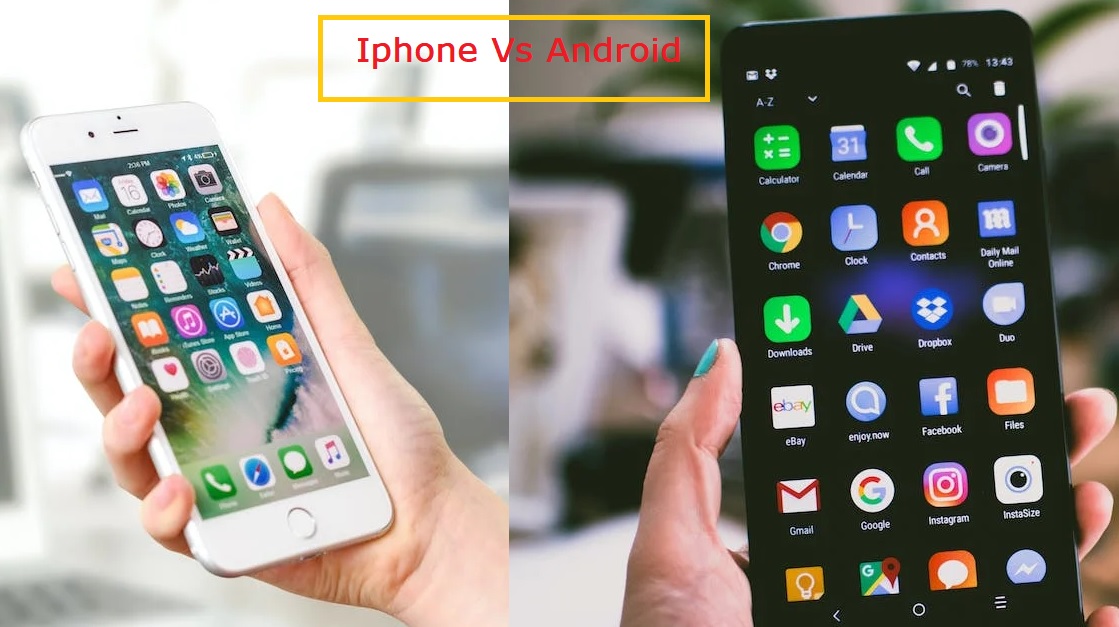The rivalry between iPhone and Android has been at the forefront of the technology landscape for over a decade, fueling debates among enthusiasts, consumers, and tech experts. As two dominant forces in the smartphone market, iPhone and Android represent distinct ecosystems with unique features, philosophies, and user experiences. Let’s delve into the key aspects of this ongoing battle and explore the nuances that define each platform.
Operating Systems and Ecosystems:
At the core of the iPhone vs. Android debate are the operating systems – iOS and Android. iOS, developed by Apple, is known for its sleek design, fluid animations, and intuitive user interface. Android, on the other hand, is an open-source platform developed by Google, offering a diverse range of customization options and device choices.
Hardware Integration:
iPhone’s hardware and software integration is a cornerstone of its appeal. Apple controls both aspects, allowing for optimized performance, seamless updates, and a consistent user experience across devices. Android, being an open platform, provides a plethora of device options from various manufacturers, resulting in varying levels of hardware-software integration.
App Stores:
Apple’s App Store and the Google Play Store are the primary sources for apps on their respective platforms. The App Store is known for its stringent quality control, ensuring a curated selection of apps that meet Apple’s standards. Google Play offers a wider array of apps, catering to various needs and preferences, albeit with varying levels of quality control.
Customization and Flexibility:
Android stands out for its customization options, allowing users to personalize their devices extensively, from home screen layouts to default apps. This flexibility empowers users to tailor their Android experience to suit their preferences. In contrast, iPhone emphasizes a streamlined and consistent user interface, limiting customization options to maintain a cohesive design philosophy.
Security and Privacy:
iOS is often lauded for its robust security features, stringent app approval process, and regular updates. Apple’s commitment to user privacy has been a hallmark of its approach, with features like App Tracking Transparency enhancing data protection. While Android’s security has improved significantly, the open nature of the platform can result in greater susceptibility to malware and data breaches.
Fragmentation vs. Consistency:
Android’s diverse ecosystem comes with a potential downside – fragmentation. Different manufacturers often release devices running different versions of Android, resulting in inconsistent user experiences and delayed updates. On the other hand, iPhone users benefit from consistent updates, ensuring they have access to the latest features and security patches.
Price Range and Accessibility:
Android offers a broader range of price points, making it accessible to a wider audience. From budget-friendly devices to high-end flagships, Android provides options for various budgets. iPhones, while known for their premium build quality and performance, tend to be priced higher, making them less accessible to some segments of the market.
Innovation and Trends:
Both iPhone and Android platforms drive innovation in the smartphone industry. Apple’s devices often showcase pioneering features, such as the introduction of Face ID and the ultra-wide camera lens. Android, on the other hand, introduces trends like foldable screens and augmented reality experiences through diverse manufacturer contributions.
Cultural and Brand Impact:
iPhone’s aspirational branding, synonymous with cutting-edge technology and luxury, has contributed to its cultural impact. Android’s open nature has given rise to a diverse ecosystem of devices that cater to individual preferences and regional markets.
Final Verdict:
Choosing between iPhone and Android ultimately boils down to personal preferences, priorities, and values. iPhone offers a seamless and tightly controlled experience, while Android provides customization, variety, and accessibility. Whether you value hardware-software integration, customization options, security, or price range, both platforms have their strengths and cater to different user needs. As the smartphone landscape continues to evolve, the rivalry between iPhone and Android remains a driving force for innovation, benefiting users worldwide.

